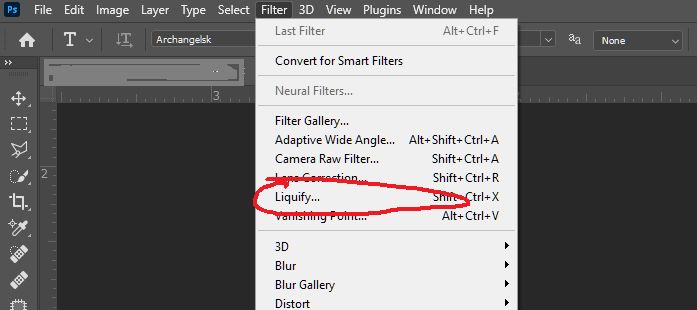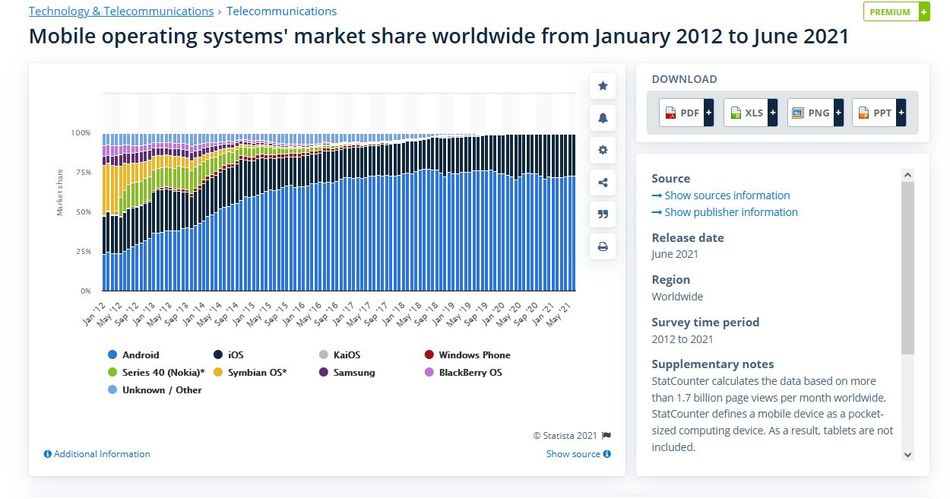Posts for: noobie
Nov 13, 2021 09:02:19 #
jerryc41 wrote:
A liquify tool is coming to ON1 next month. That will be interesting to play with.
A lot of folks have been using the Liquify Tool in Photoshop for, what, four-plus years now. It's become a very mature and feature-rich tool. Here's a link to a quick overview of its basic function - but it's capable of much more.
https://www.youtube.com/watch?v=9DLumkDFngk

Nov 11, 2021 15:59:06 #
Retired CPO wrote:
Just difference in exposure. The first one was quite a bit darker than the second.
...wasn't asking about exposure because there are numerous combinations of settings that will be correct - your first image was shot at f/4, 1/640 second, ISO 1000, a 32mm focal length, and shutter priority.
Rather, my question was about why you chose such a shallow depth of field for a 'landscape' photo.
In other words, I'm curious why, for example, you chose not to reduce shutter speed to, say, 1/150, stop down to f/8 or f/11, and change ISO to, say, 1600. Wouldn't that get you pretty close to an identical exposure but with much greater depth of field that would have then gotten the foreground. for example, in better focus -- and, to my eye, a much more pleasing image?
Nov 11, 2021 09:40:23 #
Retired CPO wrote:
Western North Dakota. Downloads work!
Just curious about your choice of f4.0 for the first photo and f6.3 for the second and would like to learn why those were chosen for what seem to be landscape photos. Interested in knowing your reasoning for selecting them and the relatively shallow depth of field they create.
Oct 31, 2021 10:09:46 #
sodapop wrote:
I have Roku.I have Xfinity cable. Xfinity will not allow Roku to provide the Nat Geo channel, which really sucks....
If you are using an Internet router that allows it, you can sign up for a VPN (virtual private network) service and implement/connect to it at the router level. Then, Xfinity has no awareness of what any device on your home network, including Roku, is connecting to on the web. Xfinity can't block what they can't see/know about.
Plus, everything you do on the Web over the VPN from your home network comes from an anonymous source - a privacy boost.
Personally, I choose pfSense on a Protectli box for my router, but there are much more user friendly devices out there. Here's a website describing some: https://www.techradar.com/news/best-vpn-routers
Oct 25, 2021 13:52:47 #
Shooter41 wrote:
Please evaluate the original image of zoo-goers in front of the zoo entrance
Some folk's approach is to expose for the ambient light *in Manual* and then simply adjust fill flash power to properly expose the foreground subjects. If you're into calculating exposures you can get it in one shot. Otherwise, keep adjusting the flash power level until it's what you like.
Another way of thinking of this is to consider you are making two separate exposure settings - one for the ambient light and a different one for the subjects.
This same technique works when shooting on sunny days against bright backgrounds.
Judging by the shadows of the subjects, the principal light source was to their right side or, if you prefer, to the left of the image frame.
Here's what 10 minutes in Photoshop can do...left it the original frame size and removed the two folks on the right of the frame.

Oct 22, 2021 09:19:23 #
jerryc41 wrote:
That's probably why Google's cell phone isn't selling very well.
Regarding Googe's "cell phone" sales, if you separate the hardware from Google's Android OS you get a different story.
According to Statista , the mobile operating systems' market share worldwide from January 2012 to June 2021 breaks down like this:
Android ~73%
iOS ~26%
Do these numbers suggest that Google is doing OK in the cell phone marketplace?
Oct 21, 2021 10:37:16 #
Merlin1300 wrote:
OK - - I'll bite.
How do you differentiate CMR vs SMR ??
I've used WD Red NAS certified for the past 12 years.
How do you differentiate CMR vs SMR ??
I've used WD Red NAS certified for the past 12 years.
Well, it's getting really hard to find any information on the packaging and/or spec sheets for drives to determine which recording technology they use. The best bet is to either ask the manufacturer tech support directly about a specific model number drive or to Google something like "which Seagate hard drives use SMR" - of course, change Seagate to whichever manufacturer you are curious about.
Here's a link from last year that's a good starting place...
https://www.truenas.com/community/resources/list-of-known-smr-drives.141/
This link is specifically about WD Red drives - you may not be happy...
https://www.servethehome.com/wd-red-smr-vs-cmr-tested-avoid-red-smr/
Here's a list of WD, in general
https://www.extremetech.com/computing/309730-western-digital-comes-clean-shares-which-hard-drives-use-smr
Oct 20, 2021 13:35:31 #
Another take on explaining the issues with SMR --- the differences between CMR and SMR
Regardless of whether an HDD uses CMR or SMR, the read head only requires a small portion of the written magnetic track.
When new data is written on an SMR drive, the tracks are fully readable without impacting performance.
However, when the data on an SMR drive is edited or overwritten, the write head will not overwrite the data onto the existing magnetic track (like CMR does). Instead, the new data will be written onto an empty area of the disk, while the original track with the old data will temporarily remain. When the HDD becomes idle, it will enter a reorganization mode, where the old bits of data on the original track will be erased and made fully available for future use.
This reorganization mode must occur to completely delete tracks, making the idle time essential for an SMR drive. If an SMR drive is being used heavily for reads and writes, it will not have enough time to reorganize the magnetic tracks, causing the tracks with the old data to stay put temporarily. As a result, the SMR drive may need to write new data and reorganize the old track at the same time, resulting in a negative impact on the overall read/write performance.
Regardless of whether an HDD uses CMR or SMR, the read head only requires a small portion of the written magnetic track.
When new data is written on an SMR drive, the tracks are fully readable without impacting performance.
However, when the data on an SMR drive is edited or overwritten, the write head will not overwrite the data onto the existing magnetic track (like CMR does). Instead, the new data will be written onto an empty area of the disk, while the original track with the old data will temporarily remain. When the HDD becomes idle, it will enter a reorganization mode, where the old bits of data on the original track will be erased and made fully available for future use.
This reorganization mode must occur to completely delete tracks, making the idle time essential for an SMR drive. If an SMR drive is being used heavily for reads and writes, it will not have enough time to reorganize the magnetic tracks, causing the tracks with the old data to stay put temporarily. As a result, the SMR drive may need to write new data and reorganize the old track at the same time, resulting in a negative impact on the overall read/write performance.
Oct 20, 2021 09:35:46 #
Longshadow wrote:
Not worried about methodology.
Not worried about methodology.
Valid point about diminishing track sizes over time not causing problems, but the issues with SMR are way beyond that simple change.
The SMR overlapping-tracks architecture complicates the writing process since writing to one track also overwrites an adjacent track. If adjacent tracks contain valid data, they must be rewritten as well. As a result, SMR drives are divided into many append-only (sequential) zones of overlapping tracks that need to be rewritten entirely when full, resembling flash blocks in solid state drives. Consumer-level device-managed SMR drives *hide* this complexity by managing it in the drive's internal firmware, presenting an interface that deceptively looks like any other hard disk. While SMR drives can use *large* caches to help improve writing performance, continuous read/writing of data is slower than with CMR drives.
SMR is a good way to get more data into a smaller space, on a budget. But all this overlapping and rewriting results in much slower performance – also, likely much harder (impossible?) to ever recover data if your hard disk fails.
Guess my definition of "they work" differs from yours. As is often said these days, "Follow the science."
Oct 19, 2021 09:36:35 #
When purchasing a HDD these days, you might want to pay attention to what recording technology it is using. In the past, pretty much all drives used Conventional Magnetic Recording (CMR) where tracks are written side-by-side and do not overlap.
Beginning a year or so ago, all of the major HDD manufacturers began slipping Shingled Magnetic Recording (SMR) drives into their product lines --- WITHOUT telling anyone. With SRM, the tracks overlap much like shingles on a roof. The upside of this is greater track density which leads to using fewer platters and heads than CRM drives and then, ultimately, to high-capacity drives that cost less a lot less to manufacture. The downside is that SMR handles using/releasing free space in a complicated/inefficient way and in some applications that activity can create serious problems. If, for example, you are filling a backup drive by creating large backup images, deleting an old image and immediately writing a new large backup file, or if you are using a RAID array you'd be well advised to ensure any new drive you purchase is a CMR drive.
SMR does result in lower performance, but it enables cost savings that are attractive to some users, and if used in the correct types of workloads, those savings are worth the exchange of gaining access to deeper capacity. However, using SMR tech for desktop and laptop boot drives will likely remain a topic open for debate, as their underwhelming performance in sustained random write workloads could hamper performance in standard operating systems.
Considerable information, analysis, and discussions about this are easily discoverable with Google.
Beginning a year or so ago, all of the major HDD manufacturers began slipping Shingled Magnetic Recording (SMR) drives into their product lines --- WITHOUT telling anyone. With SRM, the tracks overlap much like shingles on a roof. The upside of this is greater track density which leads to using fewer platters and heads than CRM drives and then, ultimately, to high-capacity drives that cost less a lot less to manufacture. The downside is that SMR handles using/releasing free space in a complicated/inefficient way and in some applications that activity can create serious problems. If, for example, you are filling a backup drive by creating large backup images, deleting an old image and immediately writing a new large backup file, or if you are using a RAID array you'd be well advised to ensure any new drive you purchase is a CMR drive.
SMR does result in lower performance, but it enables cost savings that are attractive to some users, and if used in the correct types of workloads, those savings are worth the exchange of gaining access to deeper capacity. However, using SMR tech for desktop and laptop boot drives will likely remain a topic open for debate, as their underwhelming performance in sustained random write workloads could hamper performance in standard operating systems.
Considerable information, analysis, and discussions about this are easily discoverable with Google.
Oct 19, 2021 09:24:51 #
jerryc41 wrote:
Unfortunately, I don't believe we will ever find intelligent life in the universe. . : )
The Drake Equation provides an analytical and empirically valid insight into the probability of life on other planets:
http://exoplanets.nasa.gov/news/1350/are-we-alone-in-the-universe-revisiting-the-drake-equation/
Oct 9, 2021 09:22:18 #
An opinion about electric cars and CO2 emissions...
"This talk will challenge the popular perception that Battery Electric Vehicles (BEVs) are environmentally friendly, and will argue that we are inappropriately rushing the market introduction of these vehicles. BEVs are commonly sold under the guise of being ‘Zero Emissions,’ an assertion that is not true by any definition."
https://www.youtube.com/watch?v=S1E8SQde5rk
"This talk will challenge the popular perception that Battery Electric Vehicles (BEVs) are environmentally friendly, and will argue that we are inappropriately rushing the market introduction of these vehicles. BEVs are commonly sold under the guise of being ‘Zero Emissions,’ an assertion that is not true by any definition."
https://www.youtube.com/watch?v=S1E8SQde5rk
Oct 8, 2021 08:47:09 #
Longshadow wrote:
Check this out: https://www.security.org/how-secure-is-my-password/
Gave this password security checker a try and got interesting results.
According to the site, the password-- B27%Jj9#R. - -can be cracked in 5,000 years.
The password-- This is my password -- will take 100 quadrillion years to crack.
Tried this with others and got the same result. My conclusion is that a password that is a simple, easy to remember sentence with spaces between the words is about as good as it gets.
Oct 7, 2021 12:52:42 #
[quote=jerryc41]I watched Ask Leo last night. The question was what kind of drive to buy.
When purchasing a HDD these days, you might want to pay attention to what recording technology it is using. In the past, pretty much all drives used Conventional Magnetic Recording (CMR) where tracks are written side-by-side and do not overlap.
Beginning a year or so ago, all of the major HDD manufacturers began slipping Shingled Magnetic Recording (SMR) drives into their product lines --- WITHOUT telling anyone. With SRM, the tracks overlap much like shingles on a roof. The upside of this is greater track density which leads to using less platters and heads than CRM drives and then, ultimately, to high-capacity drives that cost less a lot less to manufacture. The downside is that SMR handles using/releasing free space in a weird/inefficient way and in some applications that activity can create serious problems. If you are filling a backup drive by creating/deleting large backup images or if you are using a RAID array, for example, you'd be well advised to ensure any new drive you purchase is a CMR drive.
SMR does result in lower performance, but it enables cost savings that are attractive to some users, and if used in the correct types of workloads, those savings are worth the exchange of gaining access to deeper capacity. However, using SMR tech for desktop and laptop boot drives will likely remain a topic open for debate, as their underwhelming performance in sustained random write workloads could hamper performance in standard operating systems.
Check it out: Google (or DuckDuckGo) is your friend.
When purchasing a HDD these days, you might want to pay attention to what recording technology it is using. In the past, pretty much all drives used Conventional Magnetic Recording (CMR) where tracks are written side-by-side and do not overlap.
Beginning a year or so ago, all of the major HDD manufacturers began slipping Shingled Magnetic Recording (SMR) drives into their product lines --- WITHOUT telling anyone. With SRM, the tracks overlap much like shingles on a roof. The upside of this is greater track density which leads to using less platters and heads than CRM drives and then, ultimately, to high-capacity drives that cost less a lot less to manufacture. The downside is that SMR handles using/releasing free space in a weird/inefficient way and in some applications that activity can create serious problems. If you are filling a backup drive by creating/deleting large backup images or if you are using a RAID array, for example, you'd be well advised to ensure any new drive you purchase is a CMR drive.
SMR does result in lower performance, but it enables cost savings that are attractive to some users, and if used in the correct types of workloads, those savings are worth the exchange of gaining access to deeper capacity. However, using SMR tech for desktop and laptop boot drives will likely remain a topic open for debate, as their underwhelming performance in sustained random write workloads could hamper performance in standard operating systems.
Check it out: Google (or DuckDuckGo) is your friend.
Jul 26, 2021 09:16:33 #
jerryc41 wrote:
Not very intuitive. It will be faster for me to change each filename individually.
There's a little learning curve -- but it's an amazing tool...kinda' like photo editors.
